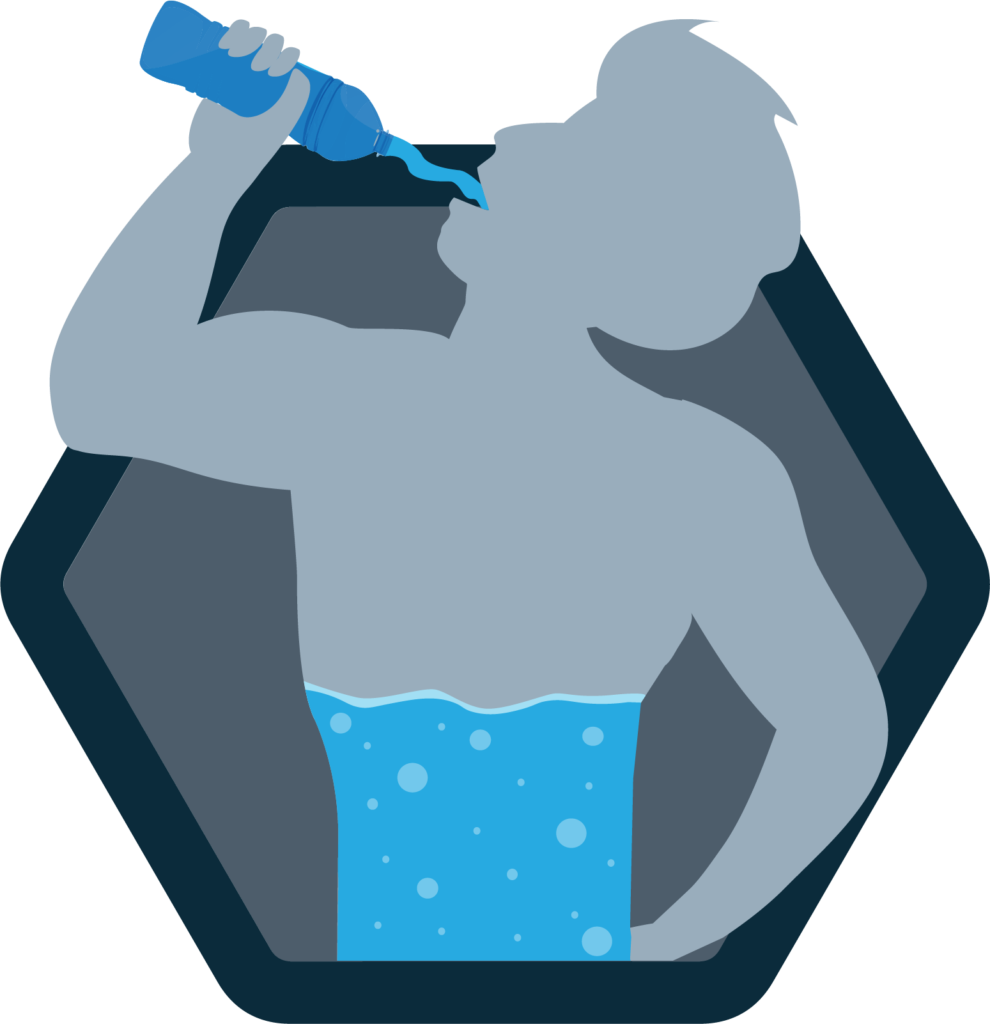The human body uses fluids for several important bodily functions such as regulating body temperature and disposing of waste through processes like urination. Our bodies naturally generate heat as they function. To help maintain a healthy body temperature, our bodies utilize the fluids in our system in processes like sweating. As we sweat, it’s critical to replace and retain fluids through drinking water or other products designed to rehydrate the body, such as a sports hydration drink.

What are the risks of dehydration?
As our bodies become dehydrated, our body’s ability to stay cool becomes hindered. This causes exercise to become more difficult as you get tired more easily, but as dehydration continues there are other significant health risks that become a concern such as heat stroke and cardiovascular failure. In ideal conditions, the human body can only survive for ~3 days without water. However, physical activity and climate are examples of several factors that can impact how much water our bodies use and expel.
What is rehydration?
Rehydration is the process of adding fluids back to the human body to replace fluids lost during bodily functions. One way to do this is through the consumption of a beverage. Not all beverages interact with our bodies the same way. Many are not able to hydrate our bodies efficiently. During rehydration, it’s important to not only consume fluids but also to retain the fluids in order to be properly rehydrated. While some fluids can be optimally absorbed and retained in the body for rehydration, there are many fluids that are not. Instead of fluids being optimally absorbed into the body, they are expelled from the body in processes like urination.
Discover Osmolality
What determines how well a drink will rehydrate your body? Why do some drinks hydrate but others don’t? One of the most important factors is osmolality, which measures the amount of material in a solution. As we drink a fluid, our body’s ability to absorb and retain is affected by the amount of material in the solution itself. Through WHO and UNICEF recommendations, we now know that in order for a drink to rehydrate the body optimally, it has to have an osmolality level (or concentration of materials) within a specific range. Outside of this range, a drink is unable to rehydrate optimally, if it hydrates at all.

What does all of this mean?
Have a hydration product? Test with us.
Discover the benefits of testing your products with a GLP-compliant osmolality testing lab and becoming THE OSMOLab℠ CERTIFIED.

